Roland Yeomans's Blog, page 121
March 4, 2017
WHEN YOU FIND YOURSELF BESEIGED BY LIFE!
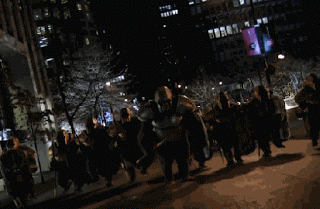
"Maybe the wolf is in love with the moon. And each month, he howls for the love he will never be able to touch." -Samuel McCord
In the past two days, I have worked 24 hours ...
And as you might expect, there has been precious LITTLE time for me to write on my latest dream.
HAS LIFE EVER GOTTEN IN THE WAY OF YOUR DREAMS?
“That's what happens to dreams, life gets in the way.” ― Jodi Picoult, Handle With Care
Strength does not come from winning. Your struggles develop your strengths. When you go through hardships and decide not to surrender, that is strength.
Arnold Schwarzenegger
As a young man, Arnold decided to get up 30 minutes earlier than he wanted and to study for an entire year a subject he wanted to know better.
I decided to do that as well. It works for me even in this harsh, time-draining job of mine. I get up 15 minutes early and stay up 15 minutes later to get in a little writing.
Sometimes life insists on her way, and I let her ... for a day or two. But then, I fall back into the pattern again.
A young man was told by his physician that because of his neuro-muscular disease, he would only be 70% all his days.
He grew depressed. He sat channel surfing and came upon Arnold in PREDATOR.
He thought to himself: "70% of Arnold? Why not?"
And so began his long, grueling days of physical training.
He now looks like a lean tiger and moves more graceful than before the diagnosis.
There is a path if we but look for it.
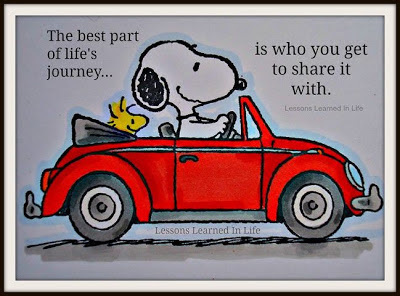
We bloggers are better writers for we know we are not alone.
All of this is too general?
How can we write when there is so much pressing in on us?
1. Pinpoint Underlying Issues. If you've always wanted to write and aren't doing it, invest some thought in figuring out the source of your writer's block.
Is it a fear of failure, a longstanding tendency to procrastinate, or something as simple as a lack of writing space? Find the flaw -- then, map out a plan to deal with it. 2. Just Say "No." Time is limited, and for most people, the demands on their time are unlimited. Once you've determined what you want to say yes to, the ability to say no becomes an important muscle to build.
While your writing time should not be the most important thing in your life,
it should give way only for the more important things in your life.
3. Schedule Time to Write.
It's not glamorous or exciting to adhere to a schedule, but it really does help.
If you work full-time, it may actually be easier to establish a regular time each day in which to write.
Get up early and write before you leave the house,
take a notepad with you to lunch, or stop off at a coffee shop on your way home.
4. Resist the Impulse to Overdo It.
If you're the kind of person who tends to throw yourself into a new project only to burn out after a week or two,
consider giving yourself stop times for writing. 5. Know That It Won't Always Be Easy.You may be more tired at the end of the day.
Some social obligations might get pushed aside.
Your family might have to pitch in.
Decide what you're willing to sacrifice for a few hours a week dedicated to writing.
Most of us have obligations we can't avoid, but if you're determined, you can manage both.
At the same time, be content with whatever you can realistically give to your writing. Even an hour a day adds up over time.
What do you do when life presses in on you?
How do you cope with Time'sstrangle-hold on yourwriting?
Published on March 04, 2017 21:15
March 2, 2017
WHAT'S LOVE GOT TO DO WITH IT?
"Each of us is broken, looking for where our jagged pieces might fit into the broken places of another."
- Cora Pearl
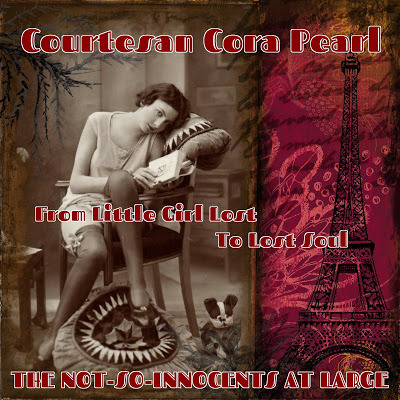
"We fall in love with the projection of our needs onto a person who neither sees themselves or us truly."
- Lucy Wentworth
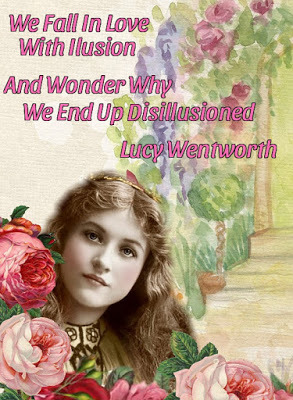
50 Shades Darker --
I wonder why those books and the movies and others in the same mode
do so well.
Have we given up on love?
Has lust seared the perceptions of our culture so much that
love is no longer valued, desired or believed in?
To me, no matter the genre, if love is nowhere to be seen in a novel ...
it does not interest me.
Humor, love, adventure are necessary for me to enjoy any book.
How about you?
Published on March 02, 2017 22:32
February 28, 2017
IWSG post_ WHAT'S SO FUNNY?
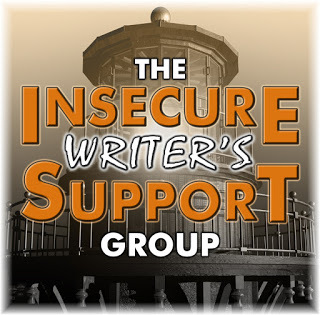
Sometimes you just have to laugh or go insane, right?
We writers know that from our gauntlet of rejections.
So why do we forget to include it in our novels?
 Many authors foolishly think of humor in writing to be limited to Slapstick. They are wrong.
Many authors foolishly think of humor in writing to be limited to Slapstick. They are wrong.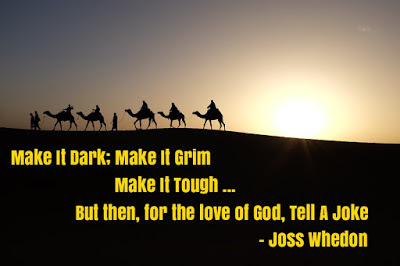
Why did Joss Say That?
1.) Your Characters Become Relatable
Over 90% of readers think they possess a great sense of humor.
They may be wrong, but weaving humor into your characters will draw your reader to her or him.
2.) Humor Relieves Tension
Sometimes events get overpowering in novels.
Humor gives a vent to tension and allows the reader to take in a breath.
From Casablanca to Die Hard to any Marvel movie you will find this done.
As the poor hunter being mauled by a cougar called out to his companion loathe to shoot lest he hit his friend --
"Shoot! One of us has got to get relief!"
3.) Uncomfortable Subjects become tolerable
Humor is often the only vehicle able to address touchy topics in a non-threatening way.
Think Gran Torino and racism.
4.) Warms Your Reader to Your Character
People with a sense of humor are better liked --
and this comes in handy when one of your characters is a bit prickly in other ways.
5.) Helps Make Your Book a Page Turner
Humor also requires us to slow down and pay attention.
Studies show that changes in brain waves in response to punch lines are similar
to those when we notice a rare, intriguing event that captures our attention.
Humor actually encourages readers to read closely,
and that makes the reading experience more immersive.
6.) Aids in the Flow of Your Novel
Humorous remarks or incidents tend to happen near the end of a chapter or long scene.
They provide a rhythm and let the reader know it’s time for the next scene.
7.) Humor Helps To Make Your Characters Multi-dimensional
People joke all the time --
and sometimes the more tense a situation is the more a person might joke ...
just to relieve the emotional strain.
If you want your characters to seem more real-to-life, humor is one way to go.
8.) Humor is A Great Brush to Paint the Personality
Not everyone's sense of humor is the same.
The jock laughs at different things than the geek.
In fact, what one person laughs at may tell your reader more about him
than three paragraphs of description!
"Hey, Honey, what would you say to a nice walk?"
"Oh, Tom, that would be so nice!"
"Great. Would bring me some beer and cigarettes on your way back?"
Hope I at least gave you a smile. :-)
Published on February 28, 2017 16:07
WHAT'S SO FUNNY?
 Many authors foolishly think of humor in writing to be limited to Slapstick. They are wrong.
Many authors foolishly think of humor in writing to be limited to Slapstick. They are wrong.
Why did Joss Say That?
1.) Your Characters Become Relatable
Over 90% of readers think they possess a great sense of humor.
They may be wrong, but weaving humor into your characters will draw your reader to her or him.
2.) Humor Relieves Tension
Sometimes events get overpowering in novels.
Humor gives a vent to tension and allows the reader to take in a breath.
From Casablanca to Die Hard to any Marvel movie you will find this done.
As the poor hunter being mauled by a cougar called out to his companion loathe to shoot lest he hit his friend --
"Shoot! One of us has got to get relief!"
3.) Uncomfortable Subjects become tolerable
Humor is often the only vehicle able to address touchy topics in a non-threatening way.
Think Gran Torino and racism.
4.) Warms Your Reader to Your Character
People with a sense of humor are better liked --
and this comes in handy when one of your characters is a bit prickly in other ways.
5.) Helps Make Your Book a Page Turner
Humor also requires us to slow down and pay attention.
Studies show that changes in brain waves in response to punch lines are similar
to those when we notice a rare, intriguing event that captures our attention.
Humor actually encourages readers to read closely,
and that makes the reading experience more immersive.
6.) Aids in the Flow of Your Novel
Humorous remarks or incidents tend to happen near the end of a chapter or long scene.
They provide a rhythm and let the reader know it’s time for the next scene.
7.) Humor Helps To Make Your Characters Multi-dimensional
People joke all the time --
and sometimes the more tense a situation is the more a person might joke ...
just to relieve the emotional strain.
If you want your characters to seem more real-to-life, humor is one way to go.
8.) Humor is A Great Brush to Paint the Personality
Not everyone's sense of humor is the same.
The jock laughs at different things than the geek.
In fact, what one person laughs at may tell your reader more about him
than three paragraphs of description!
"Hey, Honey, what would you say to a nice walk?"
"Oh, Tom, that would be so nice!"
"Great. Would bring me some beer and cigarettes on your way back?"
Hope I at least gave you a smile. :-)
Published on February 28, 2017 16:07
February 27, 2017
MARDI GRAS, A MIRROR OF OUR TIMES?
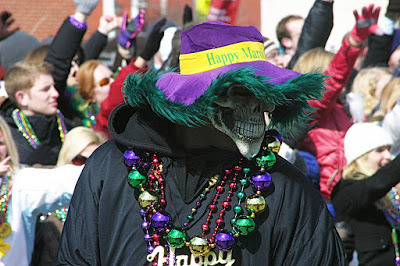 Mardi Gras has become the Party for Everyone.
Mardi Gras has become the Party for Everyone.
But it was not always so.
Time Magazine in the Feb. 9, 1948, issue, wrote that
balls and "krewes" were for the city's elites only, and that situation lasted for decades.
The '50's were artificial and magazines, television, and movies gilded the times in the minds of many.
 But there was the emergence of a new subversive culture growing
But there was the emergence of a new subversive culture growing beneath the smooth, stable surface of the decade that would explode in the 1960s.
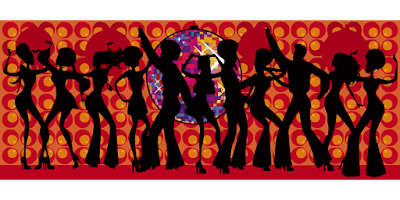 TheMardi Gras krewes may have multiplied,
TheMardi Gras krewes may have multiplied, but they were still separated along racial and gender lines.
As recently as 1991,
the relative exclusivity of the Mardi Gras krewes was a source of controversy in New Orleans.
That December, the city council voted to require the krewes to integrate by 1994,
or else lose the right to hold parades.
(The krewes are private clubs, but the city controls the streets.)
So, of course, the exclusivity in America has had to go underground as is chillingly portrayed
in the latest horror film, GET OUT!
Two decades later, things have changed with Mardi Gras:
The krewes have modernized and opened up:
where they were once the domain of money and blue blood,
these days membership applications to many krewes are available to anyone with an Internet connection.
 But violence has accelerated
But violence has accelerated
The bodies flying over the hood of a pick-up truck driven by a drunk driver
injuring 28 this past Saturday is only one example.
Could movies like HOSTEL or SAW have been shown in the seventies, eighties or the nineties
much less have multiple sequels?
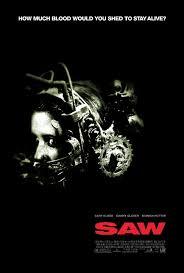
Does our modern entertainment reflect the changing soul of America?
What do you think?
Published on February 27, 2017 20:32
February 25, 2017
GOOD PROSE TIP #1

"A good novel tells us the truth about its hero;
but a bad novel tells us the truth about its author."
~G.K. Chesterton.
You heard of Dick Tracy's Crimestopper's Tips?
Well, I have my GOOD PROSE TIPS.
GOOD PROSE TIP #1:
Your story has to breathe:
J R R Tolkien said there was an exhalation and inhalation to the flow of his novels.
I. Breathing in a novel that seem natural takes labor:
A.) Inhale - Setting the scene.
B.) Exhalation - Conflict or action.
C.) Try only one or the other and ...
it is the reader who will suffocate. You need both for a healthy novel that breathes life in the mind of the reader and in the flow of the story.
D.) To set a scene takes detail:
1.) The ghoul is not lovely ...
No, rather Alice has eyes of blue fire and skin the paleness of a princess,
whose last breath has just escaped her full lips.
2.) Father Renfield is not a scarecrow (too much of a cliche) ... rather he is so skinny you can almost smell his bones.
II.) Conflict is not always action but will pitted against will, goals striking sparks from one another like slashing sabers.
A.) Sometimes Lucifer has a point:
The world your reader lives in is not black and white. There are shades of gray.
The right path in life is seldom posted. And many times in our lives, the road signs lie.
A good conflict is when your protagonist must fight someone whose case he can understand but must resist due to the methods of the antagonist.
B.) There can be only one:
Often in real life two goals can exist that are both valid, both necessary --
but the existing resources or the reality of the situation mandates that only one goal can succeed.
III.) For your novel to breathe, your characters must seem real as the breath in your readers' lungs.
A.) Torn between two lovers:
If your conflict involves two worthy adversaries that might, in different circumstances, have been friends
-- then whatever conflict you place them in is notched up in the hearts of the readers.
B.) Sometimes the good guy is a prick.
The sergeant bellowing orders at you is an ass.
But he gets the job done with the fewest casualties -- not because he cares but because he has a reputation to uphold.
Suddenly, he is wounded.
The rest of the squad leaves his butt on the battlefield. You're tempted to as well.
But you know it is his experience and skill that will get all of you out of this situation alive.
You go back for him to the outcry of your teammates and the insults of the sergeant.
A grudging friendship develops between you and the sergeant.
A chasm gets wider between you and your former teammates.
You begin to realize that their sullen insistence on refusing to acknowledge the sergeant's attempts to be a better leader and a better man makes them worse than the sergeant ever was.
C.) Your characters must talk the talk.
They must speak in believable and absorbing dialogue:
1.) Speak Easy --
Speak your dialogue aloud. You'll hear flubs in the flow of the words you never would otherwise.
2.) Speak True --
Each character has their own distinct past and status: make their words reflect that.
What shows would they watch? What food would they like?
What has their past done for they way they view life and others? Their words must reflect the answers to those questions.
3.) Say What?
Have fun with the dialogue. Aim for the reader to have fun as well. Does one of your characters get all the great lines? Change that.
In real life, everyone comes up with a great zinger once in awhile.
***
For smart zingers, you can't do any better than LUCKY NUMBER SLEVIN. Listen to the vibrant life of the dialogue from the trailer.
Listen to the first version of THE THING
(Yes, it's was a League of Five favorite and a favorite of John Carpenter who remade it!):
everyone gets in a great line all through the movie.
So the fear and tension is highlighted by a three-dimensional cast of characters.
And in the following trailer for said movie, watch how the captain revealed his quiet cool and compassion without saying a word
but merely kindly taking a gun from a hysteric soldier.
(Also it's a bit amusing as well for those who take notice of details.)
It's a bit of understatement we all should aim for in our novels:
Published on February 25, 2017 20:21
HOW TO MAKE YOUR HISTORICAL FANTASY FEEL REAL
History whispers its truth to anyone who will take the time to go where it lives.
- Meilori Shinseen
Where does history pulse with imperfect life?
In journals, diaries, and personal letters.
Read the diaries of Mark Twain, the personal letters between John and Abigail Adams, the recollections of Nikola Tesla,
and you will be astounded how their vital personalities leap from the pages.
You will sit and wonder over what you've read and still not know their hearts. But you will have clues.
What we write, even in non-fiction, is not truth. It is only a mirror reflecting our own truths, our own souls.
Milo Fowler once asked me to write on how I incorporate historical figures and settings into what I write.
I can only tell you my truth. Yours will be different.
INJUSTICE propels me. And injustice leaves its bloody footprints down through the ages in the history texts.
Watch the movie, KHARTOUM,
and you will see petty politicians wash their hands of the great unwashed in Egypt
... and of the hubris of two flawed warriors of God.
Two of my historical fantasies were born of that time and of my fascination with the myths and Alien gods theories of ancient Egypt.
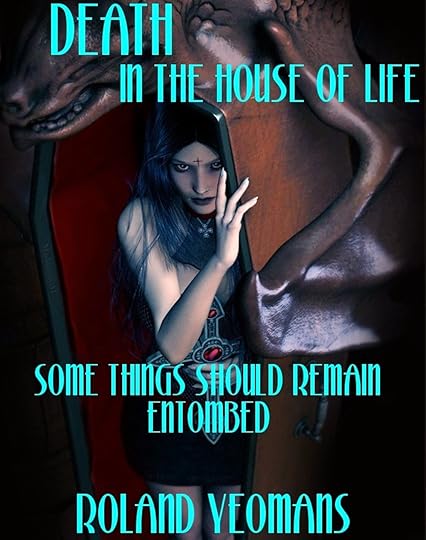 http://www.amazon.com/DEATH-HOUSE-LIFE-Roland-Yeomans-ebook/dp/B00HIU5O38/
http://www.amazon.com/DEATH-HOUSE-LIFE-Roland-Yeomans-ebook/dp/B00HIU5O38/ 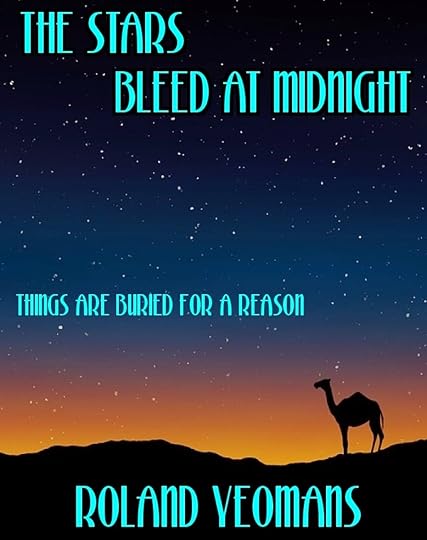 http://www.amazon.com/THE-STARS-BLEED-AT-MIDNIGHT-ebook/dp/B00N758R96/
http://www.amazon.com/THE-STARS-BLEED-AT-MIDNIGHT-ebook/dp/B00N758R96/ The "Alan Quartermain" of my linked world is the undead Captain Samuel McCord. The law is not as important to that cursed Texas Ranger as is justice.
As I read history, I think: "How would McCord deal with this injustice?"
Have you ever tried to do the "right" thing? How did that work out for you?
Those with power think that might gives them license to play out their plots for even more power.
Loosening one end of a political knot always seems to tighten it at the other end.
The beginning of our current situation in the Mid-East was sown in 1895.
The personalities of those days are revealed in their letters. Take Winston Churchill -
his MY EARLY YEARS paints a world any writer would ache to meddle with.
So I meddled ... or Samuel McCord did ... for the best possible reasons that always seem to backfire for him as they do for many of us.
In a strange way, STAR WARS seemed more real to me than STAR TREK.
The ships had dings, never worked quite right, and Han Solo shot first when it would save his life.
Your hero is only as good as his flaws which must be epic but understandable if your reader is to root for her or him.
McCord's greatest flaw is his love for his mysterious wife, Meilori, to whom Aztecs dragged screaming sacrifices ... while she smiled.
You must make your love interest rooted in human nature, alluring yet dangerous -- for men love bad girls.
And your hero's enemies must be epic as well. Historical enemies ground your novels in reality.
Take the figures you are drawn to in history. Your fascination will spill over onto your readers.
I have always been fascinated with Abigail Adams and Empress Theodora of the Byzantine Empire.
They were strong women who thrived in times when women were hard-pressed to be seen as equals by men.
How to bring them into McCord's world?
Why not make them my special strain of vampire? And leaders of their own undead empires?
To have McCord stand in their way as they fought one another for control of the rest of the world seemed guaranteed to create impossible situations for my hero to escape.
Fantasy become real when your reader nods her head, buying the agenda that drives all the characters in your drama.
There are no villains ... merely strong-willed individuals whose cherished agendas strike sparks from other strong-willed people.
Ask yourself questions:
What would the Abigail Adams of her letters become in defense of the country that she and her husband sacrificed so much for?
How might undead Abigail react to the hero-worship of a young girl?
How would Empress Theodora, the daughter of a bear trainer and wife of an emperor of savage days, view human life?
How would her worldview differ from a Texas Ranger's whose code of honor was born of his educated parents and Apache mentor?
What was the daily life like for the British overseers of Egypt in 1895?
How did it differ from the common man on the dusty streets?
What were the major sights of Cairo of that time, of the desert ruins?
How did one get from here to there in that time? What were the smells and sounds along the way?
Tourist books of that time will inform you of many of those questions ... and more important of how the Egyptians, both upper, middle, and lower class, were viewed.
Also they will provide clues to how people talked in that era. No O.K.'s allowed in your dialogue!!
Take care not to info-dump on your poor readers. But do have fun with the world, and so your reader will have fun, too.
Small details garnered from newspaper accounts of those days will lend depth and reality to your tale.
Make use of Man's knee-jerk denial of what makes him uncomfortable to explain why the magic of your novel blends without many ripples into the events of your narrative.
The more exotic and rustic your locale, the easier will the magic in your tale not be noticed by the world in general ...
and so not jar the willing suspension of high school history lessons of your reader.
Find pictures or better yet videos. It is all too true that a picture is worth 1000 words!
I hope I've helped in some small way. :-) Roland
Published on February 25, 2017 06:08
February 22, 2017
HOW TO WRITE AN ENSEMBLE NOVEL & IWSG Anthology News
Speaking of ensembles:AVAILABLE NOW -
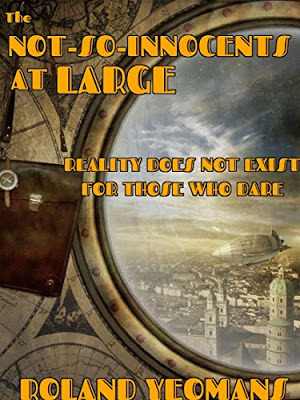 https://www.amazon.com/dp/B01LY15Y0W/
https://www.amazon.com/dp/B01LY15Y0W/
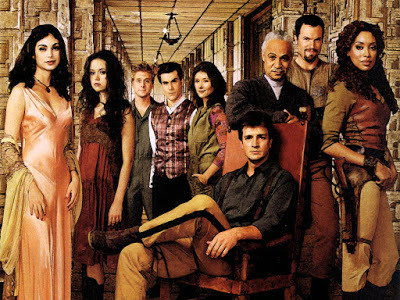
Take Ken Folett's Century Trilogy.
It begins with Fall of Giants.
The first 7 pages of that novel consists of the list of characters. Wow.
How many people put the book down after seeing that?
J K Rowling knew how to handle an ensemble novel.
Despite one school of thought that urges
an ensemble novel not to be just of two major characters with a supporting cast,
JK had a triad of heroes. And her novels did just fine.
So what are some good guidelines for an ensemble novel?
1.) YOU know your characters.
Your novel's characters must stand out one from the other if they are to stick in the minds of your readers.
Readers will not have the advantage of being able to remember their faces as they would do in a large party.
If you know your characters inside and out, then you will make them distinctive.
2.) INTRODUCE YOUR CHARACTERS SLOWLY
Remember that large party I was talking about up above?
Imagine if host of said party introduced you to a dozen people within minutes?
How many of them would you remember ... even with aid of seeing their faces?
Give each character AN IMPORTANT FUNCTION THAT PROPELS your novel along and an arc that is meaningful.
3.) NO MINI-ME's ALLOWED
No subservient character that is not part of the group, but just follows along to serve as comic relief or sounding board for needful exposition.

In my The Not-So-Innocents Abroad,
I took pains to not let 11 year old Nikola Tesla become that to my story-line.
Even his black cat, Macak, served an important function.
How can you tell if a character is not a Mini-Me but a supporting character
(which is entirely all right, and is, in fact, necessary for ensemble novels)?
A supporting character has an actual life when not with the rest of the group ...
and that is mentioned in the novel.
4.) NO TRAITS WITH LEGS PLEASE
Your novel is not SNOW WHITE so please no walking traits that masquerade as living, breathing characters!
People are mosaics of many traits, many interests, many flaws, and hopefully many virtues!
5.) NO "ONE OF THESE IS NOT THE SAME"
Avoid homogeny.
Most groups have diversity in their ranks, even if they are performing the same task: Policeman, Fireman, Doctors.
BUT AVOID "THE ONE OF EACH" CURSE --
Star Trek: Voyager seemed guilty of that to me.
It smacked to me of tokenism, checking off boxes when writing the character into being,
6.) REMEMBER THE BREAKFAST CLUB --
GIVE YOUR CHARACTERS PASSIONS
If you give your characters passions
—poetry, football, astrology—
those interests will influence their reactions and distinguish them from each other.
PAY ATTENTION TO YOUR CHARACTERS' SPEECH PATTERNS
Not everyone speaks the same: their education, their social background, their interests will all shape how they speak.
After a few chapters, if you have done your job right, readers will be able to tell one character from another just by the way in which they speak.
LET CHOICE OF CLOTHING REVEAL CHARACTER
The prim and proper girl versus the cheerleader. The poor student versus the wealthy socialite.
The jock versus the scholar. The shy student versus the extrovert.
I did not mention one article of clothing but you saw the clothing difference in each set of individuals I mentioned, didn't you?
7.) DON'T BE KANYE WEST
Name your characters with care.
No Josh and Joe; no Kira and Kelly.
Names that blur together in your readers' minds are the kiss of death.
Give your characters distinctive names that stand apart from every other character.
HERO LOST ANTHOLOGY BLOG TOUR
I haven't done a book tour since my DON'T BUY MY BOOK BLOG TOUR!

I was wondering when the HERO LOST ANTHOLOGY comes out in paperback
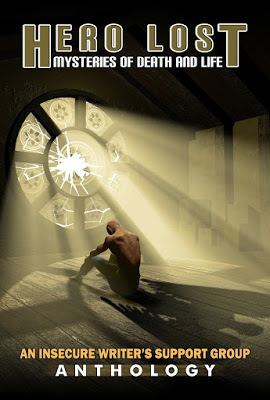 https://www.amazon.com/Hero-Lost-Mysteries-Death-Life/dp/1939844363
https://www.amazon.com/Hero-Lost-Mysteries-Death-Life/dp/1939844363
if any of you would like to have me pay a visit to your blog.
I would do the heavy lifting and write the copy for you.
Or you could ask me questions. Your choice.
Let me know if you would be interested.
Roland (Stetson in Hand)
 https://www.amazon.com/dp/B01LY15Y0W/
https://www.amazon.com/dp/B01LY15Y0W/

Take Ken Folett's Century Trilogy.
It begins with Fall of Giants.
The first 7 pages of that novel consists of the list of characters. Wow.
How many people put the book down after seeing that?
J K Rowling knew how to handle an ensemble novel.
Despite one school of thought that urges
an ensemble novel not to be just of two major characters with a supporting cast,
JK had a triad of heroes. And her novels did just fine.
So what are some good guidelines for an ensemble novel?
1.) YOU know your characters.
Your novel's characters must stand out one from the other if they are to stick in the minds of your readers.
Readers will not have the advantage of being able to remember their faces as they would do in a large party.
If you know your characters inside and out, then you will make them distinctive.
2.) INTRODUCE YOUR CHARACTERS SLOWLY
Remember that large party I was talking about up above?
Imagine if host of said party introduced you to a dozen people within minutes?
How many of them would you remember ... even with aid of seeing their faces?
Give each character AN IMPORTANT FUNCTION THAT PROPELS your novel along and an arc that is meaningful.
3.) NO MINI-ME's ALLOWED
No subservient character that is not part of the group, but just follows along to serve as comic relief or sounding board for needful exposition.

In my The Not-So-Innocents Abroad,
I took pains to not let 11 year old Nikola Tesla become that to my story-line.
Even his black cat, Macak, served an important function.
How can you tell if a character is not a Mini-Me but a supporting character
(which is entirely all right, and is, in fact, necessary for ensemble novels)?
A supporting character has an actual life when not with the rest of the group ...
and that is mentioned in the novel.
4.) NO TRAITS WITH LEGS PLEASE
Your novel is not SNOW WHITE so please no walking traits that masquerade as living, breathing characters!
People are mosaics of many traits, many interests, many flaws, and hopefully many virtues!
5.) NO "ONE OF THESE IS NOT THE SAME"
Avoid homogeny.
Most groups have diversity in their ranks, even if they are performing the same task: Policeman, Fireman, Doctors.
BUT AVOID "THE ONE OF EACH" CURSE --
Star Trek: Voyager seemed guilty of that to me.
It smacked to me of tokenism, checking off boxes when writing the character into being,
6.) REMEMBER THE BREAKFAST CLUB --
GIVE YOUR CHARACTERS PASSIONS
If you give your characters passions
—poetry, football, astrology—
those interests will influence their reactions and distinguish them from each other.
PAY ATTENTION TO YOUR CHARACTERS' SPEECH PATTERNS
Not everyone speaks the same: their education, their social background, their interests will all shape how they speak.
After a few chapters, if you have done your job right, readers will be able to tell one character from another just by the way in which they speak.
LET CHOICE OF CLOTHING REVEAL CHARACTER
The prim and proper girl versus the cheerleader. The poor student versus the wealthy socialite.
The jock versus the scholar. The shy student versus the extrovert.
I did not mention one article of clothing but you saw the clothing difference in each set of individuals I mentioned, didn't you?
7.) DON'T BE KANYE WEST
Name your characters with care.
No Josh and Joe; no Kira and Kelly.
Names that blur together in your readers' minds are the kiss of death.
Give your characters distinctive names that stand apart from every other character.
HERO LOST ANTHOLOGY BLOG TOUR
I haven't done a book tour since my DON'T BUY MY BOOK BLOG TOUR!

I was wondering when the HERO LOST ANTHOLOGY comes out in paperback
 https://www.amazon.com/Hero-Lost-Mysteries-Death-Life/dp/1939844363
https://www.amazon.com/Hero-Lost-Mysteries-Death-Life/dp/1939844363if any of you would like to have me pay a visit to your blog.
I would do the heavy lifting and write the copy for you.
Or you could ask me questions. Your choice.
Let me know if you would be interested.
Roland (Stetson in Hand)
Published on February 22, 2017 16:17
February 21, 2017
THE MARDI GRAS MURDERER
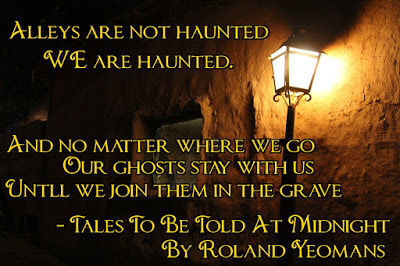
"When I am dead, my dearest,
Sing no sad songs for me;
I shall not see the shadows,
I shall not feel the rain;
I shall not hear the nightingale
Sing on, as if in pain:
And dreaming through the twilight
That doth not rise nor set,
Haply I may remember,
And haply thou may forget."
- Christina Rossetti
The night was chill. The wisps of fog swirled about me like accusing ghosts. They needn't have bothered.
My own memory accused me every waking moment.
It was Three Kings Day --
the Day of the Epiphany.
The Carnival season kicks off with this day ...
as did the murders.
For the past six years, each Carnival season had the tolling of midnight bring the discovery of a new butchered body.
Each victim had been found innocent though they had been anything but.
The crowd milling around the yellow police ribbons was ugly. Lt. Trifle beside me was beautiful, her long hair the red of a dying sunset.
The flayed alive man hung upside down on the alley wall, his body smeared in garishly loud green, gold, and purple paint.
The Mardi Gras colors were green, gold, and purple ... each holding hidden meanings.
Green represents faith, gold symbolizes power, and purple is justice. One burly pimp growled, "How long you gonna let this go on, McCord?"
The drug-thin girl to his left whined, "You're a piece of shit, Cowboy!"
Another voice in the back shouted,
"Hell, you been hiding in that club of yours for the past six years! What's wrong? The big Hoodoo scared of this killer?"

As if separating from the shadows themselves, a tall gaunt man in black robes suddenly appeared beside me and grunted,
"You could kill them as easily as I yawn, McCord-Pasha."
I flicked weary eyes to the Ningyo. "It would be redundant."
He barked a laugh matching the mood of the crowd and faded into the shadows once more.
Lt. Trifle rasped, "Who the hell was that?"
"Hayato, my wife's deadly, oblivious counselor."
"Meilori? But she left you six years a...."
Her voice trailed away as she realized the significance of the number of years these murders had been going on.
I sighed, "And Meilori must be dead for Hayato to be allowed to do this for so long."
Trifle said, "I thought you said you would sense it if your wife died."
I shook my head. "Meilori must have been so mad at me that last time that she ... severed our bond."
I sucked in my cheeks. "Meilori died ... and I never knew it until this night ... until this night."
I wrapped the shadows around me as had Hayato and disappeared to my sanctum named for the wife I now knew to be dead, Meilori's.

The club was deserted due to the Mardi Gras festivities.
Hayato sat waiting for me at my table. I smiled wryly. He was sitting in my chair, symbolic in a sense:
He had wanted to be Meilori's husband for as long as I had been married to her.
I didn't object. His loving Meilori only showed his good taste.
Hayato, Ningyo for Falcon. Fitting name since his face resembled a falcon's.
I sat opposite him and asked, "How long have you known?"
His voice sounding like desert wind wisping over sandpaper, Hayato said, "All these six long years."
That I did object to. "Why didn't you tell me, damn you?"
He shrugged. "It amused me to see you grieve, the light of an impossible hope burning in your eyes."
His own piercing eyes stabbed into me. "Now, you know how it feels to harbor an impossible hope."
"Why tell me now?"
Hayato's face became a mask of dead love. "I grow bored. Now, I go seek a good death."
The shadows swallowed him ... and me.
***
"Out of a grave I come to tell you this,
Out of a grave I come to quench the kiss." - Edward Arlington Robinson
 (Carnival comes from the Latin words carne vale, meaning "farewell to the flesh.")
(Carnival comes from the Latin words carne vale, meaning "farewell to the flesh.")***
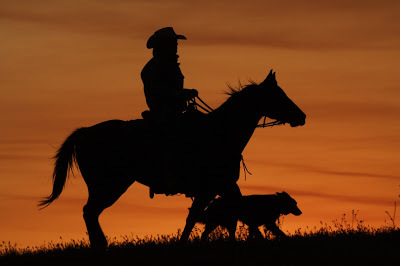
"I lived as best I could, and then I died,
Be careful where you step: the grave is wide."
- Michael R. Burch
***
Follow the Xanadu, the 1st Air-Steamship
as it sails the skies of the world
on Meilori's and McCord's 1867 honeymoon
in
THE NOT-SO-INNOCENTS ABROAD
https://www.amazon.com/dp/B01EUFRKKI
Published on February 21, 2017 20:04
February 20, 2017
HAUNTED MARDI GRAS

The setting sun cast cold ghosts of gold across the bruised dark of the French Quarter alley.
Were any ghosts awakening to haunt tonight’s Mardi Gras festivities?
I scowled at myself.
Alleys and houses were not haunted.
We are haunted, and regardless of the landscape on which we stand, our ghosts stay with us until we ourselves are ghosts.

I looked at the cracked store-backs and really didn't know who I was for about ten strange seconds. I wasn't scared.
I was just somebody else, some stranger, and my whole life was a haunted life, the life of a ghost.
I was behind the haunted Mardi Gras Den,
which had once been a corrupt police station with innocents murdered in the cells.
Then, I remembered who I was:
Captain Samuel McCord, cursed guardian of New Orleans.
“At night, the dead come back to drink from the living,” I murmured.
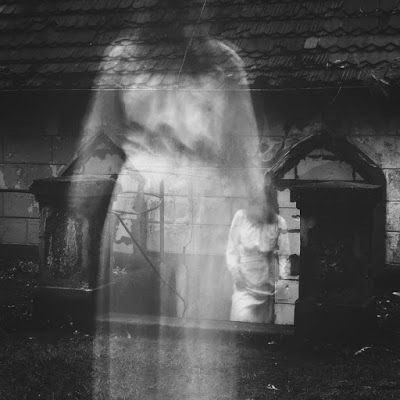
And at my words, a ghostly parade of garishly painted wooden floats appeared before me,
drawn by black skeletal horses. Spectral riders wore iridescent blue masks over their gaunt faces.
They looked down upon me … for permission to go down St. Charles Avenue.
I nodded slowly.
“Drink from no innocent, and you may pass.”
They showered me with sparkling gold doubloons that passed right through my body,
for the coins were bound to this cursed float for eternity.
Ghosts were simply unfinished business.

Sadly, these insubstantial riders would not find those who had murdered them. Some killers left the city right after the murders.
But all murderers were claimed immediately upon their deaths … some debts did not remain uncollected long after the final breath.
Murder was such a debt.
As the floats passed through me in icy tingles, I noted grimly that there were more of them than last year, packed with many more spectral riders.
I thought of my own ghosts:
The people you loved and lost became ghosts inside of you, and by cherishing them you kept them alive.
I turned and walked into the haunted night with only my ghosts for company.

Published on February 20, 2017 14:43



